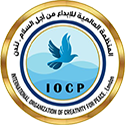محاضرة حول واقع الأديان في الهند وآفاق الحوار الديني: الأستاذ الدكتور محمد ثناء الله الندوي
14/02/2021
محاضرة الأستاذ الدكتور " محمد ثناء الله الندوي"حول "واقع الأديان في الهند وآفاق الحوار الديني"
محاضرة الأستاذ الدكتور محمد ثناء الله الندوي (المستشار الثقافيّ للمنظمّة العالميّة للإبداع من أجل السلام، فرع الهند) فى موضوع " واقع الأديان فى الهند و آفاق الحوار الدينيّ" فى جامعة قطر.
دخول الإسلام فى الهند قبل العصر الأموي (661-750م) و سلسلة الحكومات الإسلاميّة من الغزنويّين (997-1152م) والغوريّين (1186-1206م) والمماليك (1206-1290م) والخلجيّين (1290-1320م)، والتغلقيّين (1320-1440م)، والسادة (1414-1451م) واللوديّين (1451-1566م) والمغول (1526-1875م)، والهند زمن الاستعمار البريطاني (1857-1947)، والهند بعد الاستقلال تمثّل كيانا ثقافيّا و معرفيّا تحتّم عليه أن يؤمن بالتعايش السلميّ فى سياق التعدّديّة الدينيّة و الخلافات الفكريّة بين الإسلام و الديانات الهنديّة (الهندوكيّة و الجينيّة و البوذيّة) و المسيحيّة فى مرحلة متأخرة. و قد جاء هذا المنطلق من جهة الصوفيّة فى الهند من سلاسلها المختلفة (الجشتيّة و القادريّة و السهرورديّة و النقشبنديّة و سواها) و آخرين من الدعاة و المناظرين و الكتّاب الذين حاوروا مع حكماء الهندوس و اليوجيّين و غيرهم ليخففوا من وطأة الحساسيّات الدينيّة و يسهموا فى إثراء التعايش السلميّ، و اتخذوا مناهج و مواقف فكريّة و سلوكيّة مجتمعيّة سلميّة تؤمن بالوئام بين مختلف شرائح المجتمع.
إن العالم اليوم فى أمسّ حاجة إلى تجديد الحوار الدينيّ و الثقافيّ البنّاء بين الديانات و الثقافات فى وجه تفاقم الحساسيّات الطائفيّة و أدوارها الفاتكة.
الأستاذ الدكتور محمد ثناء الله الندويّ (مستشار المنظّمة الثقافي فى الهند و مؤلف عدد من الكتب فى موضوعات الفكر و الأدب المقارن و المُحاور الفعاّل بين الأديان فى الهند و خارجها منذ أكثر من عقد) يلقى محاضرة عن ( واقع الأديان فى الهند و آفاق الحوار الديني). المحاضرة تقيمها كليّة الشريعة و الدراسات الإسلاميّة بالتنسيق مع مكتب الدراسات العليا فى الكليّة بجامعة قطر يوم الأحد 14 فبراير 2021، بإذن الله.
Professor Mohammad Sanaullah Al-Nadawi’s scheduled lecture Religion and Interfaith Dialogue Scenario in India
Islam’s arrival in India long before Umayyid rule (661-750) coupled with successive rules of Ghaznavids (997-1152), the Ghaurids (1186-1206), the Slaves (1202-1290), the Khiljis (1290-1320), the Tughlaqs (1320-1440) and finally the Mughals (1526-1857) founded a religio-cultural trajectory of great historical significance as the scenario is marred with centuries of co-existence with original Indian religions such as Hinduism, Jainism, Buddhism and Sikhism, besides Christianity at a latter stage. Given the inherent ideological and cultural differences between Abrahamic faith and Vedic culture, the new entrants had to believe in social harmony overcoming sectarianist religious and cultural affiliations under the umbrella of unity in diversity. This air of non-combative co-living was augmented by Sufis of various orders, especially the Chisties, Qadiries, Suhrawardies and Naqshbandies, besides other preachers, debaters and writers who entered into meaningful dialogue with Indian Spiritualists and Yogis.
The world turning to be a small village in modern times needs much of such cross-cultural dialogues in order that the unfortunately raising tides of disharmony are smothered and the planet earth remains a better place to live in.
Professor Mohammad Sanaullah Al-Nadawi (Aligarh Muslim University, India) and Cultural Advisor of International Organization of Creativity for Peace (London) and author of a number of books on Cross-culturalism, Comparative Literature and Faith and active participant in Interfaith Dialogue over a decade will be delivering a lecture on Religion and Interfaith Dialogue Scenario in India to address the historical trajectory and present scenario alongside the suitable methodology to deal with such a topic in modern times.
The lecture will be organized by Faculty of Shariah and Islamic Studies, Qatar University, in collaboration with Faculty of Higher Studies on Sunday, on 14th February, 2021.
